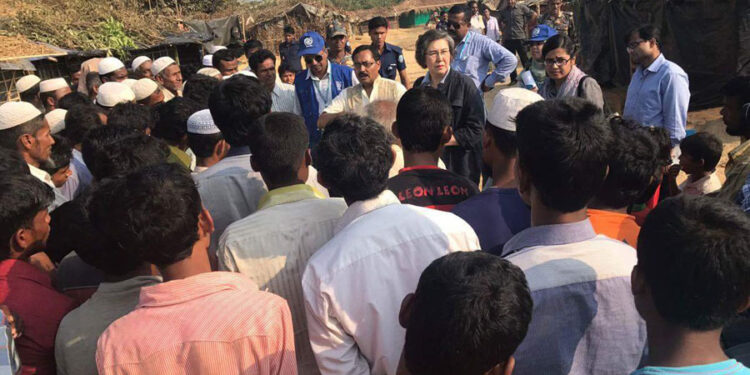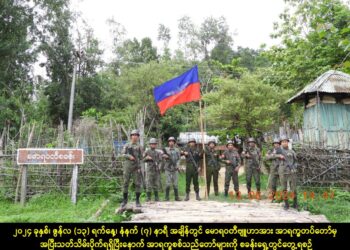RANGOON — The UN Special Rapporteur to Burma Yanghee Lee described “harrowing” accounts of abuse from Rohingya refugees and urged the Burmese government to prevent any further serious rights violations in northern Arakan State following the conclusion of her four-day trip to Bangladesh last Friday.
Yanghee Lee said that “the magnitude of violence that these families have witnessed and experienced is far more extensive than I had originally speculated” after she met with Rohingya refugees in Balukhali, Leda, Nayapara, and Kutupalong camps in Bangladesh.
“I heard allegation after allegation of horrific events like these—slitting of throats, indiscriminate shootings, setting alight houses with people tied up inside and throwing very young children into the fire, as well as gang rapes and other sexual violence,” the Special Rapporteur said in a statement released from Dhaka last Friday.
She urged a “prompt, thorough, independent, and impartial” investigation into violations already committed during Burma Army-led “security operations” in response to attacks on border guard posts in October last year, though she did not call for a UN Commission of Inquiry in her statement.
Earlier this month, IRIN news reported that Yanghee Lee would be calling for such an inquiry when she presents her full report on the human rights situation in Burma to the UN Human Rights Council (HRC) in Geneva on March 13.
A graphic flash report of abuses by Burma Army soldiers released by the UN Office of the High Commissioner for Human Rights based on the testimony of Rohingya refugees in Bangladesh had added to calls for such a commission.
On Monday, Reuters reported that Keith Harper—who served as US President Barack Obama’s ambassador to the Geneva-based council from 2014 to January this year—said the HRC must set up a Commission of Inquiry.
In Friday’s statement, Yanghee Lee also referred to internal police investigations into cover-ups of several custodial deaths which have come to light in the last two weeks.
The rapporteur remarked that she had “raised such cases during [her] visit to Myanmar and the response which was given—that the deaths were related to their pre-existing medical conditions—appears now to be called into question.”
The UN expert also cast doubt on an announcement by the State Counselor’s Office that military operations in northern Arakan State had finished—she said she had been informed that there was still a heavy military presence in the area.
She reiterated comments made at the conclusion of her visit to Burma last month that the “decades of systematic and institutionalized discrimination, and long-standing persecution” of the Rohingya population may have led to the attacks on border guard posts in October last year.

















